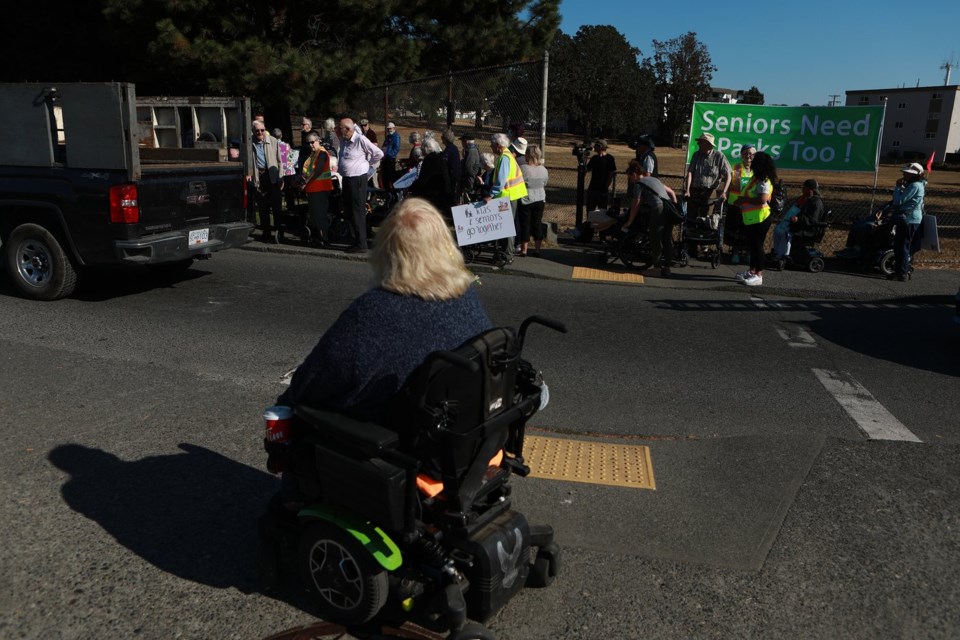VICTORIA — Seniors in British Columbia are feeling "invisible and forgotten" as they fall thorough the cracks in existing provincial support systems, their advocate says.
In his first report as B.C.'s senior's advocate, Dan Levitt says affordability was the top concern during visits with hundreds of seniors in more than 20 communities in April.
One in four seniors in B.C. earns less than $23,000 a year, an amount below the poverty line, Levitt told a news conference on Wednesday.
The report outlines what Levitt heard during his tour, including that B.C. seniors on fixed incomes are disproportionately affected by the high cost of living.
It found many seniors are unable to absorb increased costs for housing, food, medical equipment, mobility aids and other necessities for healthy aging.
Levitt said more low-income seniors are at risk of homelessness and many are turning to food banks as they struggle to make ends meet.
The report makes several recommendations for the B.C. government, starting with redesigning the Shelter Aid for Elderly Renters program.
Levitt said the program is failing to ensure low-income seniors aren't paying more than 30 per cent of their income on housing. The benefit isn't tied to inflation or rent increases, he added.
The report also calls on the province to increase its seniors supplement — currently set at a maximum of $99.30 per month for single seniors — and index it to inflation.
Responding to the report at an unrelated news conference, Premier David Eby said seniors are feeling the pinch of global inflation, high interests rates and other costs.
Eby said that's why his NDP government had doubled the seniors supplement and recently expanded the Shelter Aid program so more seniors would be eligible.
This year's budget also committed $354 million over three years for home and community care for seniors, an expansion Eby described as "dramatic."
But Levitt said the recent changes "don't go far enough."
The report from his office breaks down an example in which an existing participant earning $20,844 — the average income of recipients in the program — would see an increase of about $115 once the changes take effect in August. But that senior would continue to pay more than 40 per cent of their income on rent, the report says.
In another scenario, it says a senior earning the new income cap of $37,240 with low market rent of $1,100 would receive the minimum subsidy of $50 a month, but still pay over 30 per cent of their income towards rent.
Levitt said seniors told him they don't have what they need to keep living in their homes for as long as they can. He called on B.C. to eliminate the daily charge for home support, noting that neither Alberta nor Ontario have such a fee.
The advocate expressed further concern about a shortage of long-term care and assisted-living beds, saying people are spending thousands of dollars and travelling long distances to visit loved ones who have moved away to receive care.
The challenges will only persist as B.C.'s population ages, Levitt said.
Seniors are the fastest-growing age group in the province, and by 2036 they will make up 25 per cent of the population, he said.
"We're generally healthier and living longer. More people will be over 65 in the next decade (than) any other time in our history.
"That's good news, but the question is, are we prepared?"
Levitt said the short answer is "no."
He said demand for long-term care and other services for seniors will grow "exponentially" in the coming decade.
His office will undertake what he described as a "systemic review" of wait lists for long-term care and assisted living facilities.
"We want to see much more infrastructure being built where seniors live," he said.
The report released Wednesday further recommends that B.C. provide the $300 shingles vaccine at no cost for seniors, while developing a cross-ministry strategy to support seniors with key targets and performance measures.
Levitt said funding the vaccine and eliminating the home-care fee are steps B.C. could take immediately, while starting work on the long-term recommendations.
— By Brenna Owen in Vancouver
This report by The Canadian Press was first published June 5, 2024.
The Canadian Press




